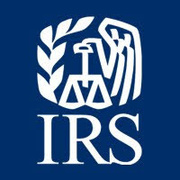Closing Date: 29th July, 2024
Description:
Summary:Office of Chief Counsel, A Government Entity, seeks enthusiastic individuals to serve taxpayers fairly and with integrity by providing correct and impartial interpretation of the internal revenue laws and the highest quality legal advice and representation for the A Government Entity. Please click "Learn more about this agency" to find out more about Chief Counsel's various offices, to view some of the workplace attributes that Chief Counsel's workforce rates most favorably, and to hear from employees themselves.
Duties:
As a key member of the executive staff of the Chief Counsel, the Associate Chief Counsel (Partnerships, S corporations, Trusts, and Estates) is responsible for coordinating and directing all activities of the Associate Office for Partnerships, S corporations, Trusts, and Estates, within the Office of Chief Counsel, A Government Entity.
The Associate Office of Partnerships, S corporations, Trusts, and Estates (Office) is comprised of approximately fifty attorneys, tax law specialists, and support employees in Washington, D.C.; and provides legal advisory services that support the uniform interpretation, application, enforcement, and litigation of tax laws involving a wide range of business and investment entities, including partnerships, S corporations, trusts, and estates (passthrough entities).
The Office manages the classification of domestic and foreign entities and issues involving passive activity and at risk loss limitations, tax shelter disclosures, and estate, gift, and generation skipping taxes (referred to collectively as "transfer taxes") and with Treasury officials and A Government Entity Division Commissioners and other Associate and Division Counsel on program matters, such as identifying and prioritizing emerging issues and publishing guidance.
Major Duties and Responsibilities:
Major duties include but are not limited to:
- Serves as the principal legal advisor to the A Government Entity and the Office of Chief Counsel on matters relating to passthrough entities and transfer taxes, publishes public and other technical guidance on such issues, and shares responsibility with the Division Counsel for the direction and oversight of the Counsel-wide litigation program involving passthrough entities and transfer taxes. Represents the A Government Entity and Treasury on sensitive and controversial issues related to these areas.
- Formulates and directs programs and policies with respect to litigation involving passthrough entities and transfer taxes in the U.S. Tax Court. Assures IRS-wide consistency of approach in tax litigation involving passthrough entities and transfer taxes; consults with the Division Counsel as to the defense or settlement of cases pending in U.S. Tax Court (including the preparation and approval of Chief Counsel actions on decisions) and, reviews and coordinates pleadings, briefs, settlement documents, notices of appeal, and other materials prepared in connection with U.S. Tax Court litigation involving passthrough entities and transfer taxes.
- Provides executive direction to staff engaged in drafting revenue rulings, revenue procedures, announcements, and news releases to be published for the guidance of taxpayers and IRS personnel; issuing technical advice memoranda responding to questions raised by IRS examiners; issuing private letter rulings and general technical information letters in response to requests from taxpayers; and preparing Chief Counsel Advice and other legal opinions for other Chief Counsel offices and IRS functions with respect to legal questions raised in litigation and IRS programs.
- Works with Treasury officials to coordinate recommendations for legislation that particularly affects matters involving passthrough entities and transfer taxes; directs IRS participation in this aspect of the legislative process, including the furnishing of advice and guidance with respect to the development of new or revised legislative proposals; oversees IRS participation with legislative staffs in the drafting of such legislation and committee reports.
- Coordinates the processing and review of nondocketed cases submitted for consideration by various local, area, division, or national levels. Renders legal advice and assistance to IRS personnel and other Chief Counsel personnel concerning issues involving passthrough entities and transfer taxes under examination in the audit of returns, or in the consideration of claims for refund. Develops and monitors performance measures and program goals for the provision of legal services and published guidance, and the implementation, compliance, and outreach initiatives on issues involving passthrough entities and transfer taxes.
- Plans, directs, and coordinates nationwide programs relating to passthrough entities and transfer taxes, including with respect to all personnel, fiscal and budgetary requests and recommendations. Balances the diverse needs of program segments, and determines the allocation and deployment of human and fiscal resources that best positions the organization to meet the needs of clients as a whole.
- Directs and oversees the overall management of the division's legal staff. Ensures all management functions are handled equitably and in a manner that is responsive to the needs of all programs that the division supports. Ensures sound position management policy. Takes positive steps in support of all merit system principles.
Requirements:
Conditions of Employment:
- Refer to "Additional Information"
- Click "Print Preview" to review the entire announcement before applying.
- Must be a U.S. Citizen or National
Qualifications:
The incumbent is expected to have substantial experience in managerial roles requiring application of broad, comprehensive, professional knowledge and experience in applying federal tax laws. Comprehensive knowledge of the tax laws that affect passthrough entities and activities, including partnerships, S corporations, trusts, estates, classification of domestic and foreign entities, issues involving passive activity and at risk loss limitations, tax shelter disclosures, and estate, gift, and generation skipping taxes, is required.
Work involves highly sensitive and intricate matters under the jurisdiction of the Associate Chief Counsel. The incumbent must have demonstrated ability to think critically, and approach issues creatively to effectively resolve problems of substantial impact, sensitivity, and complexity; and make decisions that produce high-quality results by applying technical knowledge, performing detailed legal analysis and research on problems of unusual delicacy, as well as calculating risks. Professional experience should encompass managing a large-scale legal projects, including the ability to review and assess the organizational effectiveness of program services and policies, and to design and implement procedures to improve and optimize organizational performance; as well as translate long term goals and objectives into short term tactical plans and operational activities; and supervise others to promote maximum use and development of staff, and to support equal employment opportunity initiatives and goals.
The Associate Chief Counsel (Partnerships, S corporations, Trusts, and Estates) must maintain effective working relationships, communicate effectively, and deal tactfully and diplomatically with key officials, including the IRS Commissioner, senior officials at Treasury, as well as other agencies, key external and internal stakeholders, and represent the Office of Chief Counsel in executive and professional meetings; and facilitate communications between individuals with differing points of view. Contacts may also include key members of professional associations and other tax practitioners/experts.
Graduation from an ABA accredited law school and current possession of a bar membership which permits the practice of law in the United States is required, including a thorough knowledge of the American Bar Association's Model Code of Professional Responsibility.
Executive Core Qualifications (ECQs):
Prospective candidates must have and clearly describe leadership experiences that demonstrate the executive level managerial capabilities comprising the Executive Core Qualifications (ECQ's) of the Senior Executive Service; and certification by the Office of Personnel Management's Qualification's Review Board (QRB), required for initial career appointment to the Senior Executive Service. Typically, experience of this nature is gained at or above the GS-15 grade level or its equivalent in Federal service or with state or local government, the private sector, or nongovernmental organizations.
- Leading Change - Ability to bring about strategic change, both within and outside the organization, to meet organizational goals. Ability to establish an organizational vision and to implement it in a continuously changing environment.
- Leading People - Ability to lead people toward meeting the organization's vision, mission, and goals. Ability to provide an inclusive workplace that fosters the development of others, facilitates cooperation and teamwork, and supports constructive resolution of conflicts.
- Results Driven - Ability to meet organizational goals and customer expectations. Ability to make decisions that produce high-quality results by applying technical knowledge, analyzing problems, and calculating risks.
- Business Acumen - Ability to manage human, financial,
Similar Jobs





